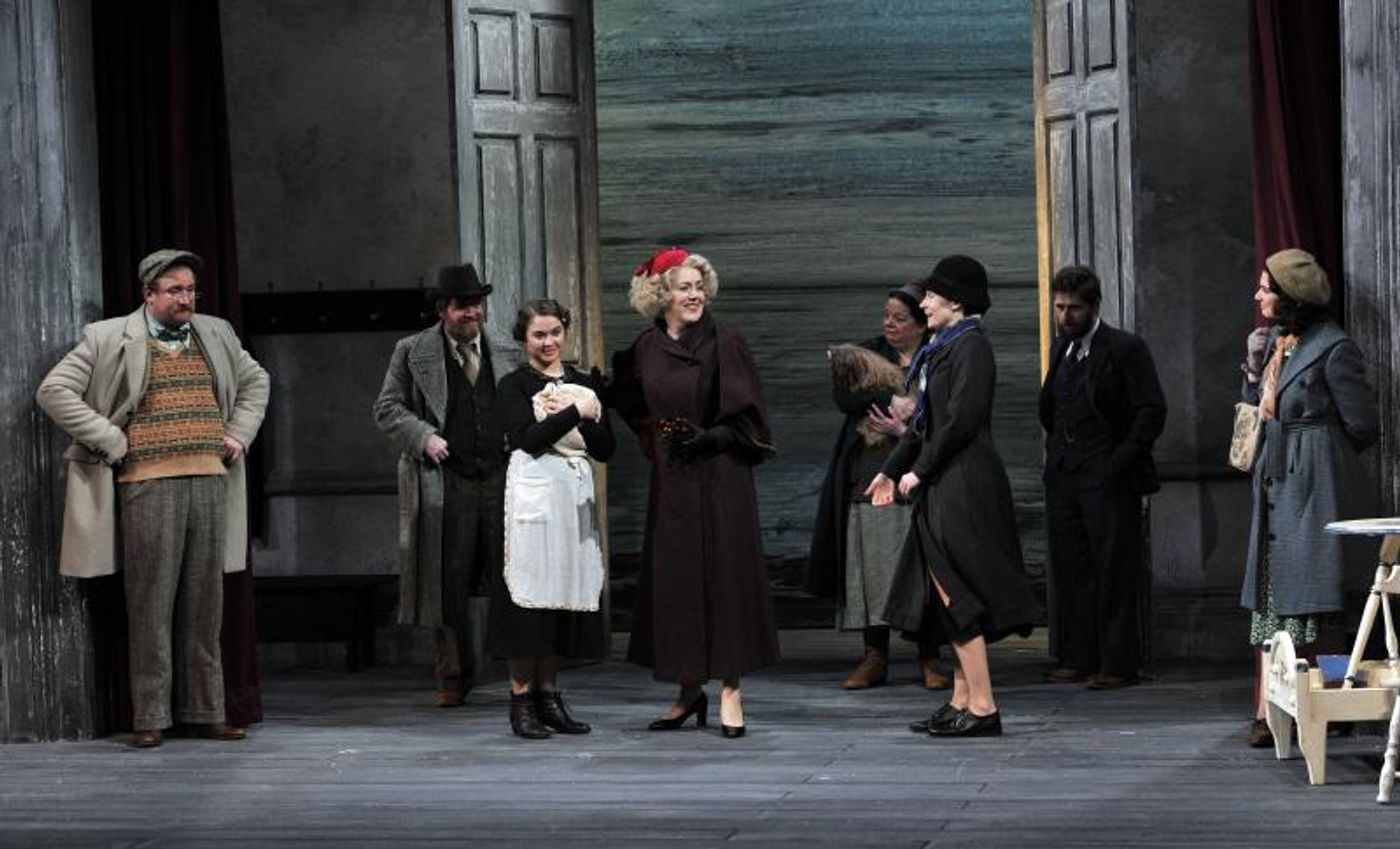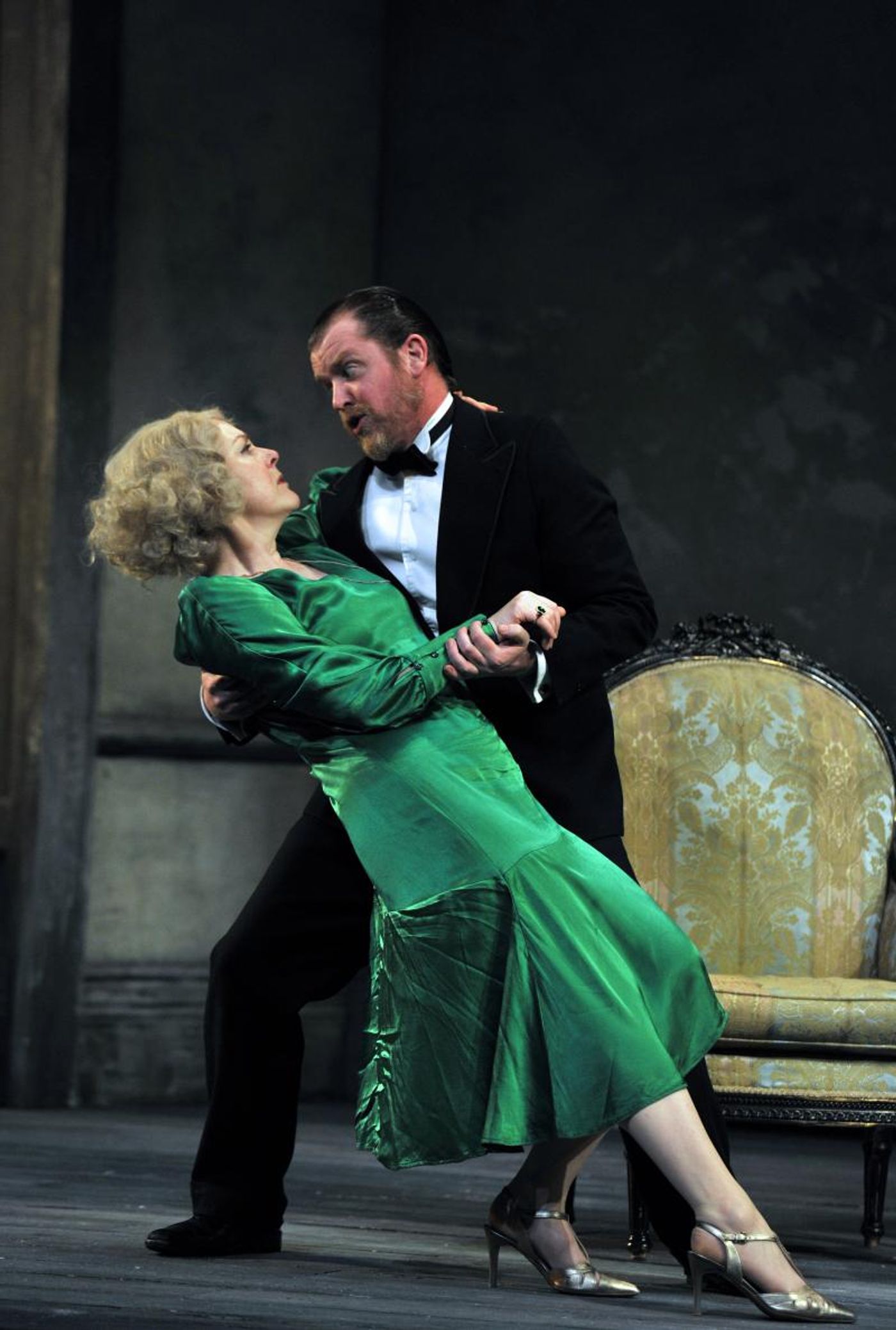Review: The last apple falls in THE CHERRY ORCHARD
It's a time of seismic change as the old order is crumbling and new values are being forged in an uncertain, fledgling society.
Tom Murphy's version of The Cherry Orchard premiered in Ireland in 2004. The momentum of the so-called Celtic Tiger was transforming Ireland - with enduring conservative values collapsing under the weight of unprecedented prosperity - but the economic juggernaut was ultimately torpedoed by the 2008 global financial crash.

Anton Chekhov's The Cherry Orchard was first produced a century before Murphy's version in a Russia undergoing severe upheaval. Serfs were emancipated in 1861 and the country was on the brink of a war with Japan that quickly ended in a humiliating defeat and spurred the 1905 Russian Revolution.
Murphy's script places an Irish idiom on Chekhov's text but retains the time and setting of Chekhov's original, and it is Murphy's version that Druid use in this sweeping production - the first major staging of the playwright's work since his death in 2018.
The precariousness of Russia's landed gentry at the turn of the 20th century is encapsulated by Ranyevskaya (a suitably fey Derbhle Crotty). Haunted by the drowning of her young son in a nearby river and smarting from the death of her husband "who died of champagne", the play opens with the prodigal Ranyevskaya returning from self-imposed exile in Paris to her dilapidated country estate.

In bristling contrast to Ranyevskaya's quixotic attitude, the hardnosed Lopakhin proposes various strategies for the debt-ridden estate, including selling the land on which the cherry orchard sits for the construction of holiday cottages. Aaron Monaghan's disciplined performance captures Lopakhin's uneasy poise: his family were serfs at the estate yet he is proposing its annihilation.
Lopakhin's anxieties about his rapid social mobility (he describes himself as "a pig's snout in a pastry shop") are tempered by his flinty practicality. "It's changing," he tells Ranyevskaya. "You can't stop the clock."
Brilliant morning light streaming through the huge drawing room windows casts Ranyevskaya and Gayev, her equally deluded brother, in an affecting ghostly pallor. The contemporary costumes - including the mariner's cap (synonymous with Lenin) worn by Petya - are evocative and Ranyevskaya's wine-red dress vividly mirrors the velvet curtain hanging from the proscenium arch at the centre of an expansive set dominated by slate and washed-out greys.
Coherently marshalling her 19-person cast through a script that ricochets from comedy to tragedy, director Garry Hynes emphasises the lingering yet still potent influence of an aristocracy whose role once extended to "owning living souls".
If the first half of the production feels unnecessarily loose, the second starts with a beautifully-choreographed dance sequence that signals a tighter focus.
As illustrated by a devastating late scene pregnant with unspoken feeling between the emotionally-stunted Lopakhin and the dutiful Varya (persuasively played by Siobhan Cullen), Hynes forensically harnesses an enveloping, scuffed poignancy as the performance builds towards its inexorable climax in this resonant, smouldering portrait of disintegration.
The Cherry Orchard runs at the Bord Gáis Energy Theatre, Dublin, from April 8 - 11 next. See druid.ie.
Photo credit: Robbie Jack.
Reader Reviews
Videos


